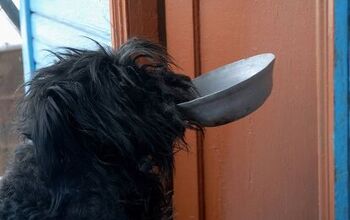Are Grain-Free Diets Good for Dogs?

Grain-free diets have become a huge trend in the pet world over the past few years. You’ve probably seen the ads: glossy bags of dog food promising “ancestral,” “natural,” or “clean” nutrition - all without a single grain in sight.
The message seems clear: Grains are bad, and grain-free is better.
But is it really that simple?
Let’s take a closer look at what grain-free dog food actually is, why it's so popular, and what the science (and vets) have to say about whether it’s the right choice for your pup.
What Does "Grain-Free" Actually Mean?
Grain-free dog foods leave out common grains like wheat, corn, rice, oats, and barley. Instead, they rely on other carbohydrate sources like:
- Peas
- Lentils
- Chickpeas
- Potatoes
These ingredients provide fiber and energy, and many brands market them as a more “natural” alternative - the idea being that dogs, descended from wolves, didn’t evolve eating grains.
It sounds convincing. But modern dogs aren’t wolves, and their digestive systems have adapted over thousands of years of domestication. So the truth is more nuanced than that.
Do Grains Cause Allergies in Dogs?
One of the main reasons people choose grain-free is the belief that grains cause allergies or sensitivities. But here’s the catch: true grain allergies in dogs are extremely rare.
Most food allergies in dogs are caused by animal proteins - like chicken, beef, or dairy - not grains. If a dog’s symptoms improve on a grain-free food, it might be because the new food removed another problem ingredient, not the grains themselves.
That said, some dogs do genuinely feel better on a grain-free diet - but it’s not always for the reason people think.
Marketing and Misconceptions
Grain-free foods are often marketed as premium, higher-quality options. They sound healthier, and many owners feel good about feeding them. But grains like brown rice, oats, and barley can actually be very nutritious for dogs.
In fact, these whole grains provide:
- Easily digestible carbohydrates
- Fiber for gut health
- B vitamins and minerals
- Support for healthy skin and a shiny coat
So the idea that “grain-free equals better” isn’t always grounded in fact - it’s often rooted in branding.
The FDA Investigation: Grain-Free and Heart Health
In 2018, the U.S. Food and Drug Administration ( FDA) started investigating reports of canine dilated cardiomyopathy (DCM) - a serious heart condition - in dogs eating grain-free diets, particularly those high in legumes and potatoes.
Some of the affected dogs had no genetic risk for DCM, which raised red flags. Researchers suspect that certain grain-free formulas may be interfering with nutrient absorption, especially taurine - an amino acid critical for heart health.
Research is still ongoing, and not all grain-free diets are harmful. Many dogs have eaten them for years with no issue. But the FDA has advised caution and recommends talking to your vet before switching your dog to a grain-free diet, especially if it’s not medically necessary.
Do Dogs Need Grains?
Here’s the bottom line: Most dogs do just fine with grains.
Dogs are omnivores, not strict carnivores. Their bodies are built to digest both animal and plant-based foods, including grains. Unless your dog has been diagnosed with a grain allergy (which is rare), there’s usually no reason to avoid them.
In fact, whole grains can be a valuable part of a balanced diet, offering long-lasting energy, digestive support, and nutritional variety.
So, Should You Feed Grain-Free?
That depends - mostly on your dog.
Some dogs with specific health needs, sensitivities, or diagnosed issues may benefit from a grain-free formula. But for the average, healthy dog, grains are not something to fear. In many cases, they’re beneficial.
Here’s what matters more than the grain vs. grain-free debate:
- Is the food complete and balanced?
- Is it made by a reputable brand?
- Does it meet AAFCO (or FEDIAF) standards?
- Does your dog thrive on it?
If the answer is yes, you’re doing just fine.
Grain-free diets can work well for some dogs, but they’re not automatically healthier - and in some cases, they may carry risks. The best choice is the one that fits your dog’s unique needs, based on facts, not fads.
When in doubt, talk to your vet. Together, you can find a food that supports your dog’s health, energy, and happiness - grains or no grains.

A proud mama to seven dogs and ten cats, Angela spends her days writing for her fellow pet parents and pampering her furballs, all of whom are rescues. When she's not gushing over her adorable cats or playing with her dogs, she can be found curled up with a good fantasy book.
More by Angela Vuckovic

























